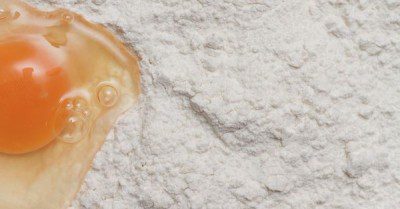
Due to it’s natural sources, lecithin is a great clean label emulsifier.
The avian flu is a continuing concern and generates a point of uncertainty throughout the food industry. It brings up several questions that marketers and product developers have to ask: what is the benefit of eggs in our formulas? Are alternative ingredients available? How does the avian flu impact consumer perception, decision making, and buying habits?
Replacing eggs may provide a range of benefits from the removal of an allergen to reducing volatility in formula costs. While many replacers are available, the selection depends on the desired finished product characteristics and label preferences.
Finding the right replacement
Eggs are a unique ingredient, bringing critical functionality to a wide variety of bakery products. In some products, eggs are the essential component of the product. Can you imagine an angel food cake without eggs?
When determining how to replace eggs in a formula, first ask what the egg is contributing. In a cookie, eggs may contribute binding; in a layer cake, structure; in donuts, emulsification. If you run the formula without eggs what changes do you see? Does the product lose volume or become dense and gummy? Since other ingredient interactions can have an impact on what eggs are contributing, it is important to get a clear picture of what and why eggs are included in each individual product.
Ways to replace eggs
In many bakery applications, wheat protein isolate can be used as a drop-in replacement for eggs. Wheat proteins are known to build structure in bakery products. The unique gluten network found in wheat proteins helps to entrap air, provide emulsification, and support volume. Because the gluten protein has been altered in wheat protein isolates, it does not contribute the rigid viscoelastic properties that would make a sweet bakery product too tough.
However, it does provide needed structure and resilience for producing and transporting products such as layer cakes or muffins in a commercial setting. The film forming properties of wheat protein provide aeration and allow wheat proteins to create a whip comparable to egg whites. The versatile nature of wheat protein isolates results in success in a wide variety of applications.

